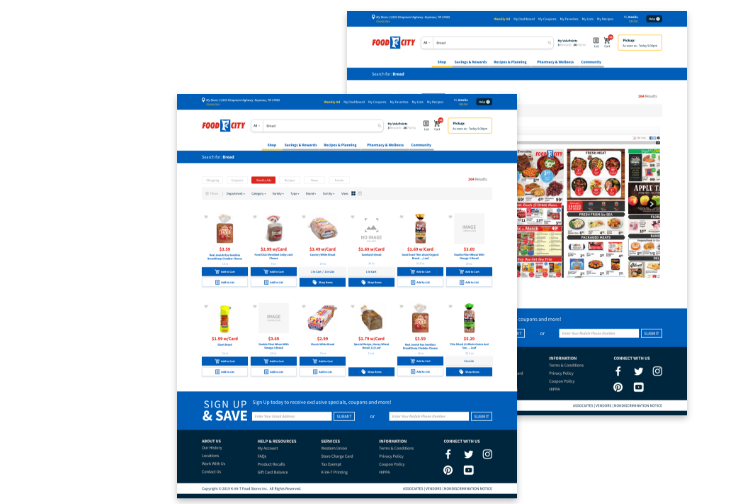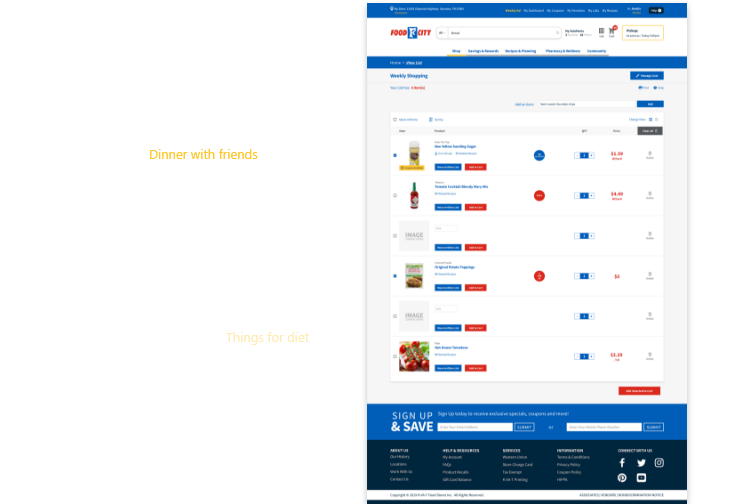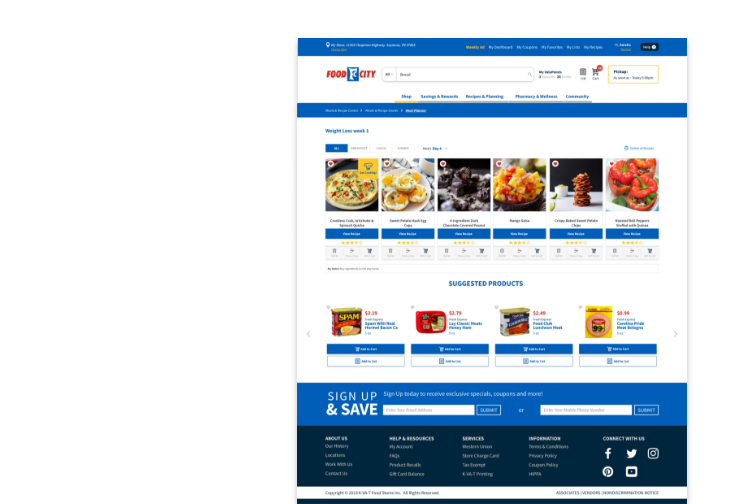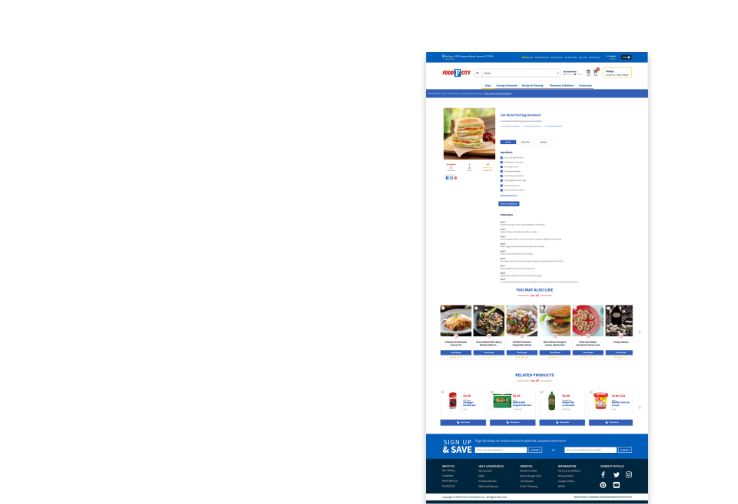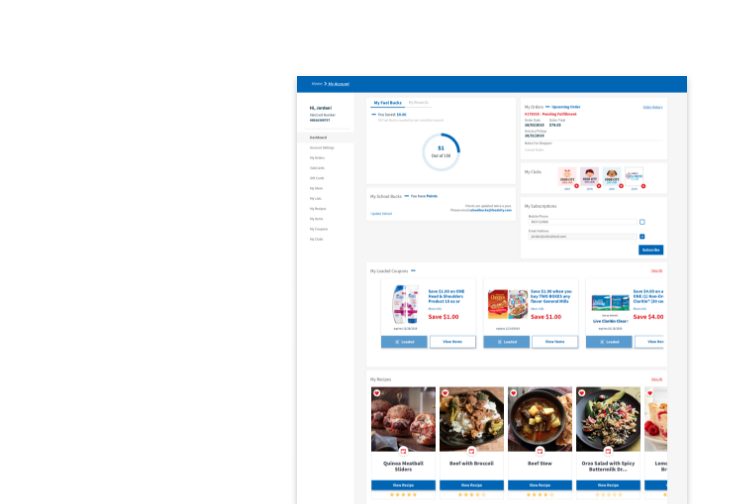
Wellness Club — Focus on the Food Groups
Abingdon, VA. -
Friday, Jan 1, 2021.
Written by: Elizabeth Hall, MS, RDN, LDN, Food City Registered Dietitian
With a myriad of nutrition information out there, many of us are left wondering…how can I eat healthfully? Every person is different, so a healthful eating pattern will vary as well. Focusing on the food groups and getting a balanced amount of each, ensures you get all the nutrients your body needs to not only survive, but thrive!
Grains & Starches: Carbohydrates found in whole grains such as whole wheat bread, cereals, and brown rice as well as starchy vegetables, beans, and plant-based proteins, provide glucose or sugar which is the body’s primary energy source. These carbohydrates are often high in fiber which aids in digestion and is protective against some chronic diseases. Rich in B-vitamins, carbohydrate can also promote a healthy metabolism and help your body make neurotransmitters, which are brain chemicals that affect mood like serotonin and dopamine.
Protein: Protein, in the form of amino acids, is found in meat, poultry, eggs, seafood, cheese, nuts, seeds, beans, and vegetarian sources like soy and tofu. These amino acids are the building blocks for your muscles, bones, blood, and skin. Animal protein sources also contain bioavailable iron which is essential for red blood cell production, while seafood contains a beneficial fat called omega-3 fatty acids which protect against heart disease and promote brain health.
Healthy fats: It is recommended to eat more unsaturated fat which is found in oils, nuts, seeds, avocado, olives, fish, and seafood. Fat, overall, helps your body make hormones and cell membranes. It also aids in the absorption of fat soluble vitamins: A, D, E, and K. A little bit of fat in a meal provides satiety and can keep you fuller longer.
Fruits and vegetables: All forms of produce including raw, cooked, dried, canned, and frozen are high in many nutrients such as vitamins, minerals, and fiber. Fruits and vegetables provide phytochemicals and antioxidants that protect against chronic diseases.
Dairy: Dairy sources include milk or milk alternatives, yogurt, and cheese. These dairy sources have calcium and sometimes vitamin D which promote bone health. Some sources are also high in potassium, promoting a healthy blood pressure.

